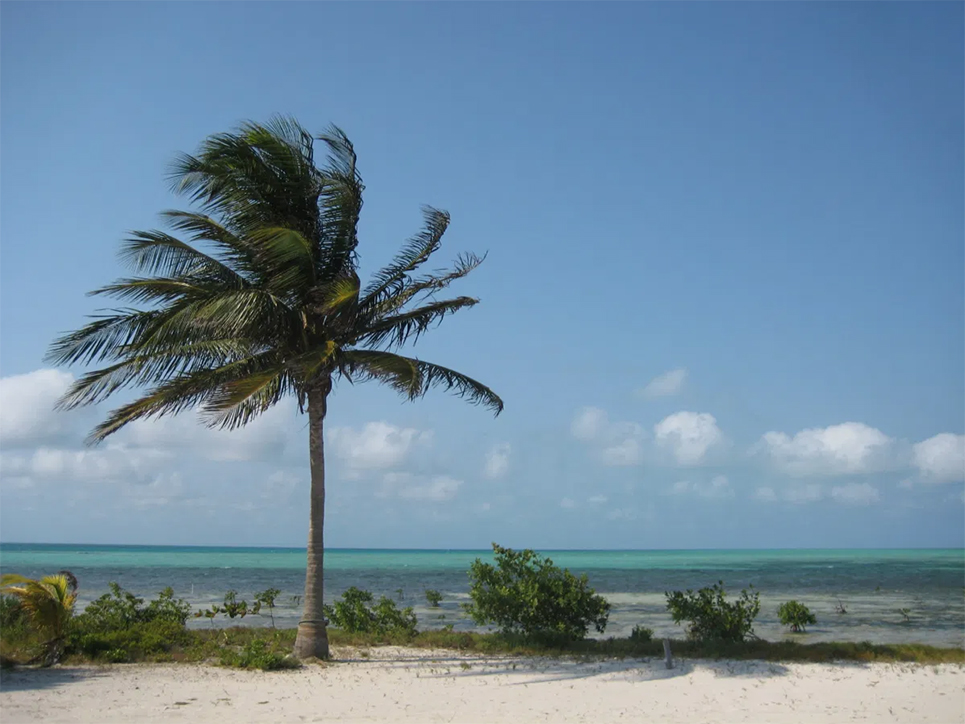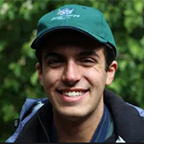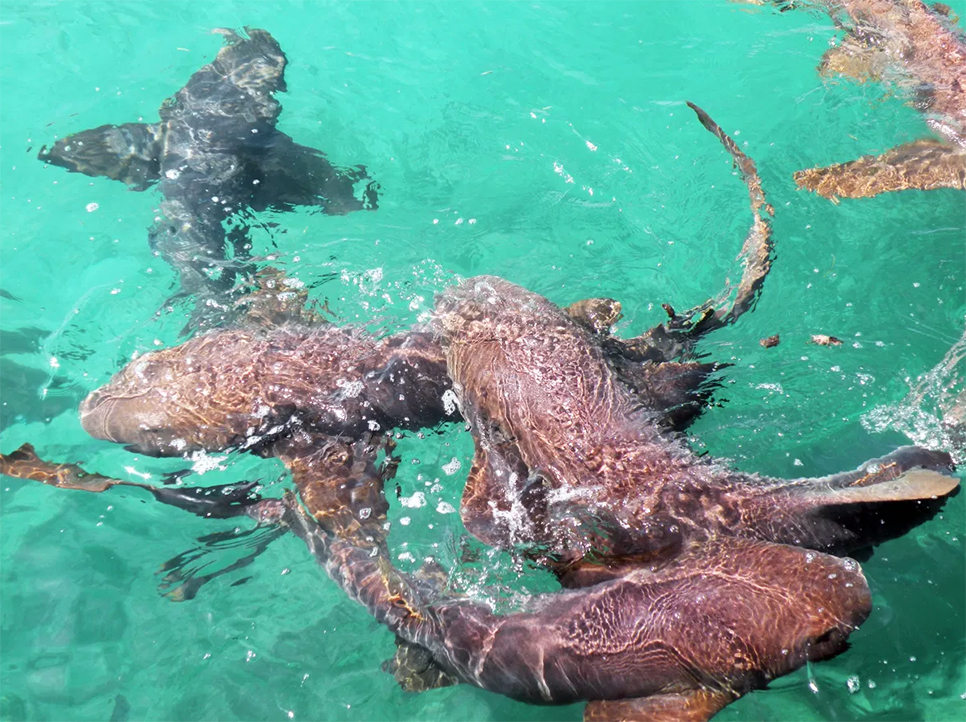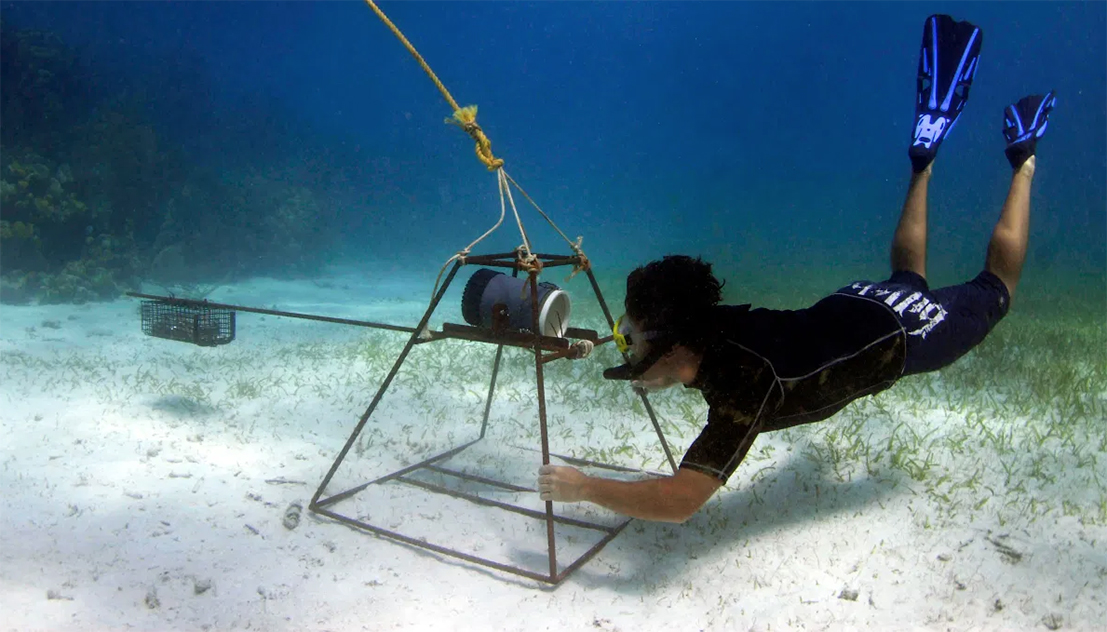.
How Two Weeks in Belize (Honestly) Changed my Life
.

.
By Ryan Saraie, Earthwatch Ignite Fellow 2013
.

Kneeling on a boat in the middle of the ocean, with the nearest patch of land barely in sight, I was instructed by the researchers leading the expedition to tag the shark we recently captured. It was just measured, but we needed to label it to be able to track it and build on the data we collected. Although I was nervous about tagging the shark, I was able to overcome my fears and get the job done.
I didn’t know that I would potentially be engaging with animals in such a direct manner when I applied to the Earthwatch Ignite summer program. In fact, I didn’t know what I would be doing at all. My biology teacher the preceding academic year told our class that the opportunity was a life-changing experience and that we should apply. I had a mostly open summer, and a two-week research expedition sounded amazing, so I applied. I am still baffled that a panel of experienced professionals read through my application and decided that I deserved this fellowship.
.

Sharks swimming in the waters off the coast of South Water Caye.
.
The expedition was incredible. Two weeks of conservation-based marine research studying the effects of recently passed government regulations that limited the types and number of sharks that could be fished. Led by a doctoral candidate from SUNY-Stony Brook, Jasmine Valentin-Albanese, our cohort of eight students collected data from sharks and other fish to determine the effects of said regulations. In addition to Jasmine, we teamed with Debbie Hadley, our Earthwatch facilitator who flew over with us to Belize, and Esther Kang, an employee from the Durfee Foundation—the organization who supports the Ignite program. Two researchers native to Belize—Bert and Norlan—guided us in the specifics of our daily work.
During our two weeks, we were not on the mainland, but on a small island named South Water Caye. It held a research center and a small resort. While it was a very small community, quite a few people lived there, living off of what the island has to offer.
The research consisted of collecting data from fish and examining video footage of marine ecosystems. When engaging with fish, we measured small groupers and larger sharks. In both cases, we gathered data such as fin length, fish length, and fish width. The smaller fish that fishermen from the island caught earlier would be cooked and served as food after being measured, proving useful for research and for meals. We also captured sharks in order to quickly take measurements and collect samples before releasing them.
.

A researcher sets up a baited remote underwater video (BRUV) camera.
.
The video-based research consisted of watching footage of marine fish populations. The videos were recorded by underwater devices known as BRUVs (Baited Remote Underwater Video). When watching these videos, we were looking for sharks and recording how many we identified.
I went through a full range of emotions during this expedition. I missed my family a lot. Interacting with sharks and other fish types was new to me, but the work was enjoyable and exciting. Above everything else, I gained interest in the field of environmental conservation. The research we were a part of was important, and it felt good to be involved in a project that would support sharks and the Belizean ecosystem. Earthwatch certainly helped cement my long-term interests in protecting the environment.
I am currently studying Environmental Economics & Policy at UC Berkeley. I am involved in a few student organizations dedicated to environmental responsibility, including our student government’s Sustainability Club. I am interested in pursuing a career in environmental policy. These details would probably be completely different had I chosen not to participate in the Earthwatch program.
.
I found the direction where I wanted to take my life, and continue to follow it to this day. Those two weeks were truly eye-opening; I won’t forget them any time soon.
.
Sign up for the Earthwatch Newsletter
Be the first to know about new expeditions, stories from the field, and exciting Earthwatch news.